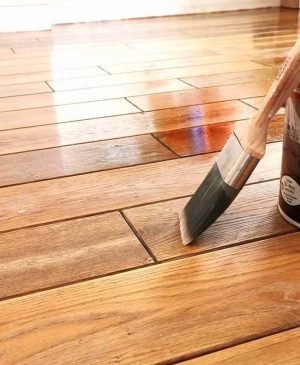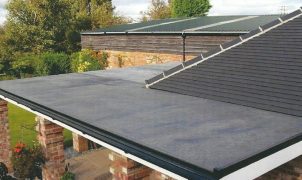The question of whether to rent or buy property is one that almost everyone encounters at some point in their lives. It’s a decision that holds significant weight, one that can shape financial futures, determine lifestyles, and even influence long-term personal happiness. In the realm of real estate, this decision boils down to a comparison between mortgages and renting—two distinct paths, each offering unique advantages and drawbacks.
Choosing between the two is not a one-size-fits-all situation. The decision depends on an array of factors: personal goals, financial stability, market conditions, and even life stage. To make this decision easier, it’s essential to examine both options carefully. In this article, we will explore the pros and cons of mortgages and renting to help you determine which option is best suited to your situation.
Understanding Mortgages: The Path to Homeownership
A mortgage is a loan from a lender that allows an individual to purchase property by paying off the loan in installments over a set period. For most people, a mortgage is the primary vehicle for buying a home, providing the financial means to purchase property without having to pay the full price upfront.
The Advantages of Mortgages
1. Building Equity: One of the greatest advantages of having a mortgage is the opportunity to build equity. Every monthly payment you make goes toward reducing the loan balance, increasing your stake in the property. Over time, as you pay down the principal and the property appreciates in value, you accumulate wealth. This equity can then be leveraged in the future, either by taking out a home equity loan or selling the home for a profit.
2. Stability and Predictability: With a fixed-rate mortgage, your monthly payments are predictable and stable, which can provide peace of mind. You don’t have to worry about sudden increases in your monthly expenses, as can happen when renting. For homeowners, the long-term nature of a mortgage means that your financial situation becomes more stable once the mortgage is in place, especially if interest rates are locked in.
3. Control and Customization: Owning a home provides complete control over your living space. You can renovate, decorate, and modify the property to suit your needs and preferences. Whether it’s building an extra room, renovating the kitchen, or installing new flooring, homeownership gives you the freedom to truly make a space your own.
4. Tax Benefits: In many regions, homeowners can benefit from tax deductions, including those for mortgage interest and property taxes. These benefits can offset some of the costs associated with homeownership, making it more financially attractive in certain circumstances.
The Disadvantages of Mortgages
1. Upfront Costs: One of the major downsides of buying a home is the high upfront costs. In addition to the down payment, which can range from 5% to 20% of the home’s value, buyers must pay closing costs, appraisal fees, inspections, and other associated costs. This can amount to a significant sum, which can be a barrier for many prospective buyers.
2. Ongoing Maintenance and Repairs: Unlike renters, homeowners are responsible for the maintenance and repair of their property. Whether it’s fixing a leaky roof, replacing appliances, or maintaining the lawn, these expenses can add up over time. This responsibility can be both costly and time-consuming, especially for first-time homeowners who may not have the experience to handle these issues.
3. Risk of Depreciation: While real estate generally appreciates over time, market conditions can cause property values to drop. Homeowners who need to sell in a down market could find themselves selling at a loss. Additionally, market fluctuations can lead to changes in property taxes or insurance rates, further affecting the cost of ownership.
4. Less Flexibility: Owning a home can limit your mobility. If you need to move for a job, family reasons, or simply want a change of scenery, selling a home can take time, effort, and money. Unlike renting, where you can usually move out with relatively short notice, selling a home can be a lengthy process that adds an element of complexity to your plans.
Renting: A Flexible Alternative
Renting refers to paying for the use of a property without owning it. In this arrangement, tenants sign a lease agreement with a landlord and typically pay rent on a monthly basis. Renting can be a more flexible and low-risk option for those who aren’t ready or able to commit to purchasing a property.
The Advantages of Renting
1. Flexibility and Mobility: One of the most significant benefits of renting is the ability to move with ease. Rental agreements are typically short-term—usually a year or less—and once the lease ends, tenants can choose to move without the hassle of selling a property. This is ideal for those who are uncertain about where they want to settle long-term or who are in a phase of life that requires frequent relocation, such as students, young professionals, or individuals in industries with high job turnover.
2. Lower Upfront Costs: Renting requires significantly less initial financial commitment than buying. In most cases, renters need to pay a security deposit and the first month’s rent, which is much less than the down payment and closing costs required when buying a home. This makes renting a more accessible option for individuals or families who might not have saved up for a large down payment or who are in the early stages of building their financial foundation.
3. No Maintenance or Repair Costs: When you rent, the landlord is typically responsible for maintaining the property and handling any repairs. If the refrigerator breaks or there’s an issue with plumbing, renters simply call the landlord, who is required to address the issue. This eliminates the ongoing expenses and responsibilities that homeowners face in maintaining their properties.
4. Lower Financial Risk: Renters face less financial risk than homeowners. If the market takes a downturn, renters are unaffected, as their monthly rent remains stable (unless specified otherwise in the lease agreement). Renters also don’t need to worry about the long-term commitment associated with property ownership, as they’re not tied to a mortgage.
The Disadvantages of Renting
1. No Equity Building: Rent payments do not contribute to any form of ownership or equity. Unlike a mortgage, where you gradually own more of the property over time, rent payments only benefit the landlord. This means renters miss out on the potential to build wealth through property ownership.
2. Limited Customization: Renters generally have limited ability to modify or personalize the space. Most landlords don’t allow tenants to make changes to the property, such as painting the walls, installing new fixtures, or remodeling the kitchen. As a result, renters often have to make do with a space that isn’t quite tailored to their tastes.
3. Rent Increases: While mortgage payments tend to remain consistent over the life of the loan (in the case of a fixed-rate mortgage), renters may face rent increases when the lease is renewed. This can be especially concerning in markets where rents are rising rapidly, as tenants may find themselves priced out of their current living situation.
4. Less Stability: Renting offers less stability than homeownership. A landlord could choose not to renew the lease or decide to sell the property, forcing the tenant to move. Renters also have no control over their living space in the same way homeowners do. The lack of permanent ownership can sometimes feel unsettling for those seeking long-term stability.
Mortgage vs. Renting: What Works Best?
When comparing mortgages to renting, the decision ultimately comes down to personal preferences, financial standing, and long-term goals. For some, the ability to build equity, customize a living space, and have more control over their environment makes homeownership the clear choice. For others, the flexibility, lower upfront costs, and fewer responsibilities associated with renting are more appealing.
If you’re looking for long-term stability, and if you can afford the financial commitment, a mortgage might be a better option, particularly in a favorable market. Conversely, if you’re in a transitional phase of life, aren’t ready to settle down, or don’t have the financial resources for homeownership, renting may be the better choice.
Ultimately, neither renting nor buying is inherently superior to the other—it’s about what works best for your specific needs, goals, and circumstances.


















